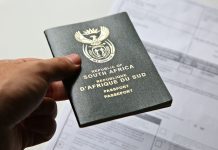
One of the victims of a series of alleged attacks on Uber riders has expressed dissatisfaction with the company’s investigation into an incident where she and her friends were assaulted and robbed. Johannesburg resident Kayleigh Marx’s experience last month was one of several cases reported to the police regarding attacks on Uber riders in Pretoria since July.
Marx and her friends had booked an Uber after midnight on Sunday, July 9, 2023, from Lucky Rodrigo, a popular night-time spot in Menlo Park. According to Marx, the Uber driver took them to a different location than the guesthouse they had booked, and her friend suspected trouble. When they tried to lock the doors, the driver unlocked them.
The driver then sprayed Marx’s friend with pepper spray, grabbed Marx’s iPhone, and unlocked the doors again. Two accomplices joined the driver in the attack and threatened to shoot them. Marx managed to escape and ran back to Lucky Rodrigo, where the suspects fled when more friends came to their aid.
Marx’s account is one of several in which people in Pretoria claim they were assaulted by Uber drivers. Uber responded by stating that they were investigating the cases internally and cooperating with law enforcement. However, in a subsequent interview, Uber’s general manager for Sub-Saharan Africa alleged that Marx’s version of events was false and that she and her co-passengers had likely entered the wrong car.
Marx denies this and claims that she reported the incident to Uber and the police on the same day it occurred. She also maintains that the driver who assaulted her friends was the same person shown in the app’s picture. Marx provided a screenshot of the Uber driver they had booked, which showed that the trip status was “Failed.”
Uber has not provided further details about the incident but reiterated that the attacks were perpetrated by third-party individuals and not by drivers on the Uber platform. They advised riders to verify their driver and vehicle details before entering the car and to enable PIN verification for added security.
In Marx’s case, the riders had not activated the PIN verification feature. Uber did not address the issue of the 72-hour wipe, but stated that the dashboard camera footage did not belong to them. The company continues to believe that the victims of these attacks had mistakenly entered vehicles driven by third parties posing as Uber drivers.






































